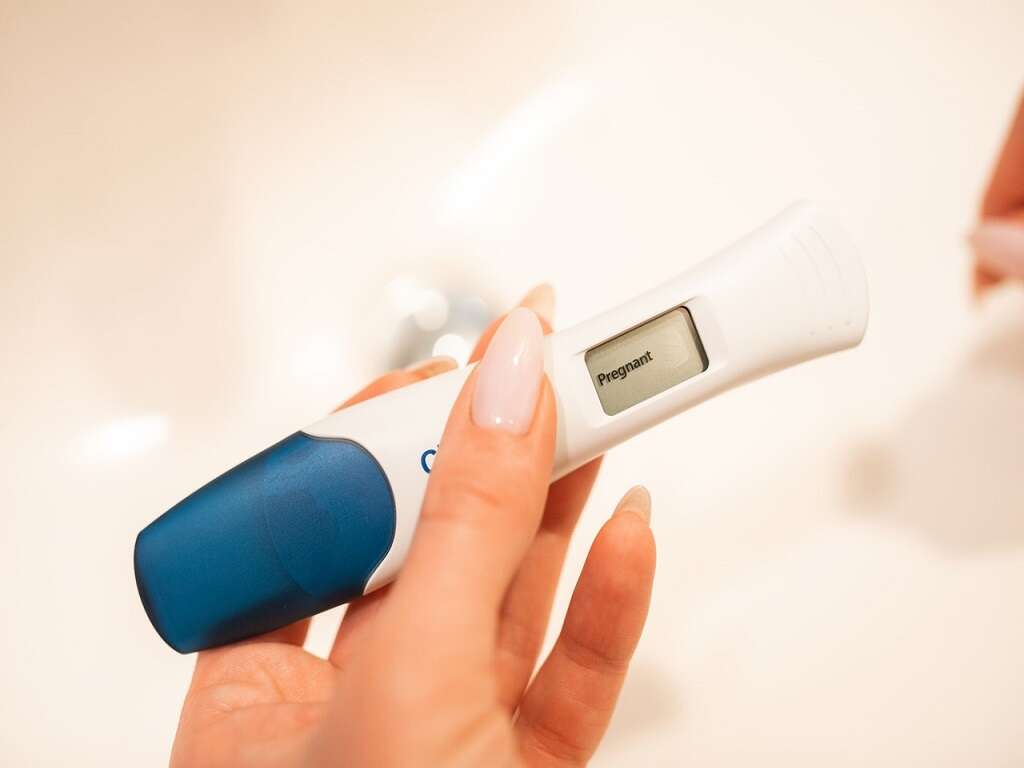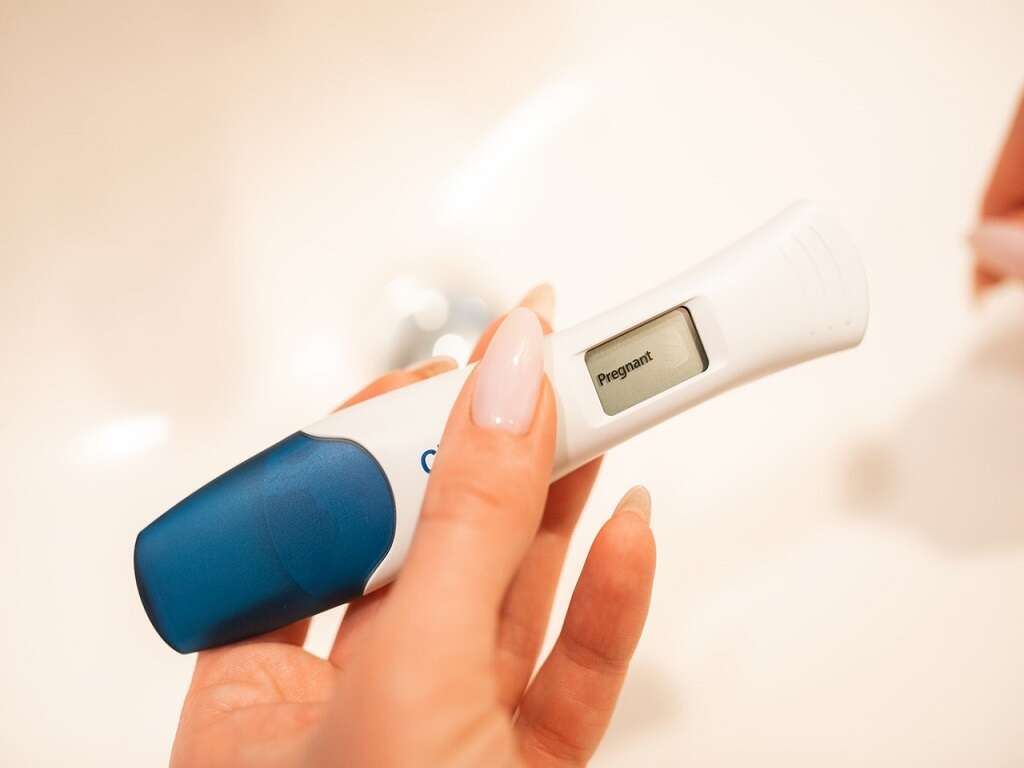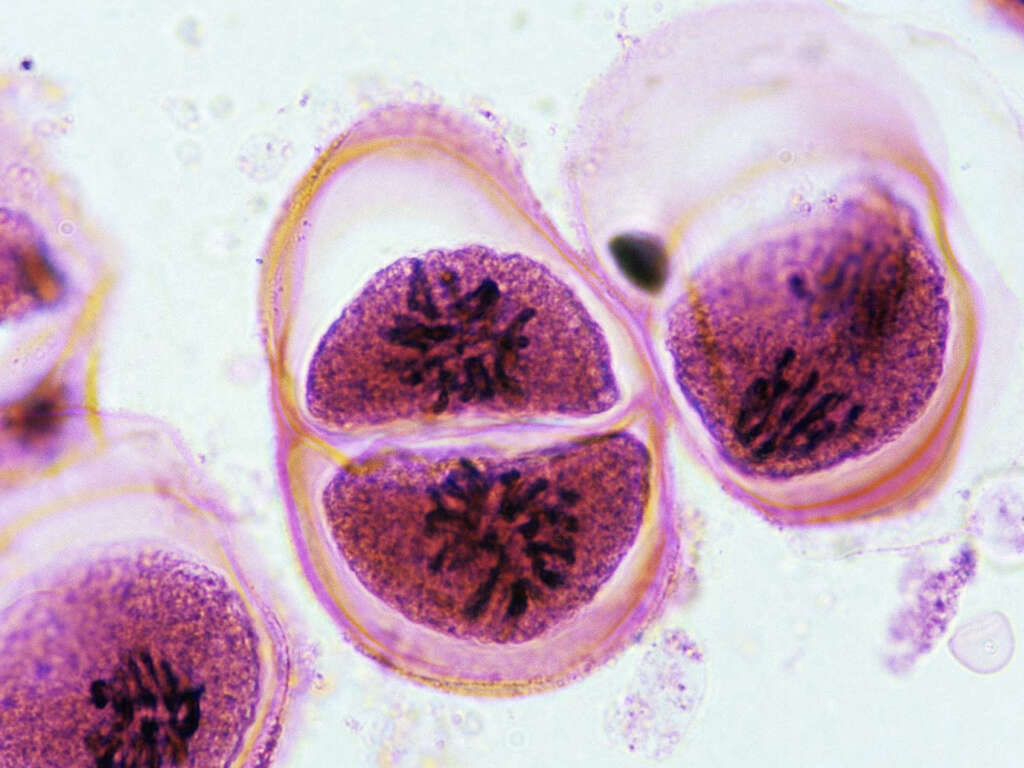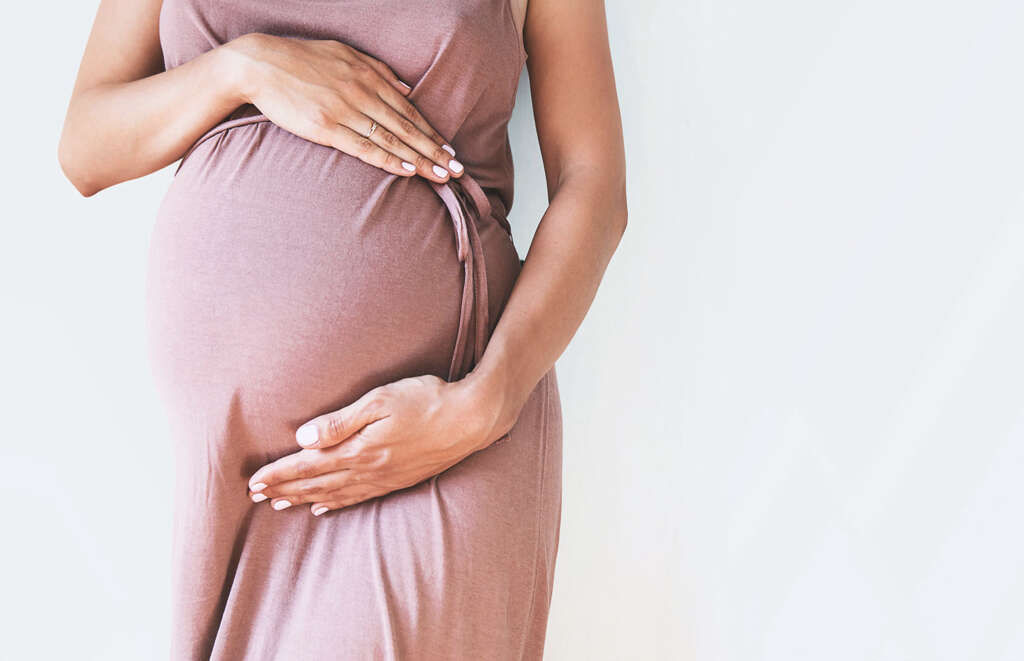Implantation Signs, Symptoms and More
 Article Sources
Article Sources
- 1. 'Symptoms of Pregnancy: What Happens First.' Mayo Clinic, Mayo Foundation for Medical Education and Research, 11 May 2019, www.mayoclinic.org/healthy-lifestyle/getting-pregnant/in-depth/symptoms-of-pregnancy/art-20043853.
- 2. 'Early Pregnancy: Signs & Verification Services.' UPMC, www.upmc.com/services/south-central-pa/women/services/pregnancy-childbirth/getting-pregnant/early-pregnancy.
- 3. 'What Are Some Common Signs of Pregnancy?' Eunice Kennedy Shriver National Institute of Child Health and Human Development, U.S. Department of Health and Human Services, www.nichd.nih.gov/health/topics/pregnancy/conditioninfo/signs.
- 4. 'What Is Implantation Bleeding?' American Pregnancy Association, 23 Oct. 2020, americanpregnancy.org/pregnancy-symptoms/what-is-implantation-bleeding-24176.
- 5. 'Bleeding During Pregnancy.' ACOG, www.acog.org/womens-health/faqs/bleeding-during-pregnancy.
- 6. 'Am I Pregnant? Early Symptoms of Pregnancy & When To Test.' Cleveland Clinic, my.clevelandclinic.org/health/articles/9709-pregnancy-am-i-pregnant.
- 7. 'Vaginal Discharge During Pregnancy.' American Pregnancy Association, 24 Aug. 2020, americanpregnancy.org/healthy-pregnancy/pregnancy-health-wellness/vaginal-discharge-during-pregnancy-1025.
- 8. NHS Choices, NHS, www.nhs.uk/pregnancy/trying-for-a-baby/signs-and-symptoms-of-pregnancy.
- 9. 'Pregnancy - Signs and Symptoms.' Better Health Channel, www.betterhealth.vic.gov.au/health/HealthyLiving/pregnancy-signs-and-symptoms#signs-of-pregnancy.
Pregnancy occurs when a sperm cell fertilizes an egg in the fallopian tube. The fertilized egg then travels to the uterus. It takes approximately 10 to 14 days between egg fertilization, or conception, and implantation into the uterus wall. A woman often doesn't realize implantation has taken place, but sometimes signs and symptoms develop.
Hormonal changes may cause a host of symptoms that signal possible pregnancy. Some are similar to those that occur with premenstrual syndrome, or PMS, so women may not be sure whether the symptoms are part of their normal cycle or signal pregnancy. Light spotting, or implantation bleeding, is one symptom they may notice.2‘Early Pregnancy: Signs & Verification Services.’ UPMC, www.upmc.com/services/south-central-pa/women/services/pregnancy-childbirth/getting-pregnant/early-pregnancy.

1. Implantation Bleeding: Color and Clotting
Up to 25 percent of women experience slight bleeding or spotting during early pregnancy.3‘What Are Some Common Signs of Pregnancy?’ Eunice Kennedy Shriver National Institute of Child Health and Human Development, U.S. Department of Health and Human Services, www.nichd.nih.gov/health/topics/pregnancy/conditioninfo/signs. If implantation bleeding occurs, its color typically ranges from light pink to dark brown. In contrast, the color of the blood present during regular monthly periods is usually bright to dark red. Some women notice clotting during normal menstruation, while others have no clotting. Implantation bleeding doesn't produce clotting.4‘What Is Implantation Bleeding?’ American Pregnancy Association, 23 Oct. 2020, americanpregnancy.org/pregnancy-symptoms/what-is-implantation-bleeding-24176.
The cervix is more prone to bleeding during early pregnancy, so it's not unusual for spotting to occur following sexual intercourse, a pelvic exam or a pap test.5‘Bleeding During Pregnancy.’ ACOG, www.acog.org/womens-health/faqs/bleeding-during-pregnancy.

2. Implantation Bleeding: Amount and Duration
A woman experiencing implantation bleeding usually only notices a small amount of spotting or a very light flow, similar to discharge. Light bleeding may occur continually during this time, or it may be intermittent, with an occasional light discharge of blood. Bleeding during menstruation is heavier and more consistent than implantation bleeding.
Implantation bleeding may last up to three days. Women experiencing their first pregnancy may experience more implantation bleeding than women who've previously been pregnant.4‘What Is Implantation Bleeding?’ American Pregnancy Association, 23 Oct. 2020, americanpregnancy.org/pregnancy-symptoms/what-is-implantation-bleeding-24176.

3. Timing of Implantation Bleeding
The embryo implants itself into the wall of the uterus six to 12 days after conception. This may disrupt some blood vessels in the uterus, causing spotting, or implantation bleeding, to occur.
The timing of implantation bleeding is similar to that of menstruation, which takes place 11 to 14 days following ovulation, or it may happen a bit earlier. This may lead some women to mistake implantation bleeding for their regular monthly period at first. However, the amount of discharge and its color, consistency and duration differ.4‘What Is Implantation Bleeding?’ American Pregnancy Association, 23 Oct. 2020, americanpregnancy.org/pregnancy-symptoms/what-is-implantation-bleeding-24176.

4. Cramping and White Discharge
During implantation and early pregnancy, mild uterine cramping may develop, similar to cramps that occur before or during menstruation. Severe abdominal pain or pain on one side of the body may indicate an abnormality that requires medical attention.6‘Am I Pregnant? Early Symptoms of Pregnancy & When To Test.’ Cleveland Clinic, my.clevelandclinic.org/health/articles/9709-pregnancy-am-i-pregnant.
Women may also notice white vaginal discharge throughout the pregnancy. This is normal and results from the thickening of the walls of the vagina. If burning or itching occurs or the discharge develops an odor, an infection may be present that requires medical attention.7‘Vaginal Discharge During Pregnancy.’ American Pregnancy Association, 24 Aug. 2020, americanpregnancy.org/healthy-pregnancy/pregnancy-health-wellness/vaginal-discharge-during-pregnancy-1025.

5. Breast Changes
A week or two after conception and implantation occur, a woman's breasts may swell and feel sore and tender. The areolas, the areas around the nipples, may become darker in color. The breasts may feel fuller and heavier, and the veins may be more visible.8NHS Choices, NHS, www.nhs.uk/pregnancy/trying-for-a-baby/signs-and-symptoms-of-pregnancy.,9‘Pregnancy - Signs and Symptoms.’ Better Health Channel, www.betterhealth.vic.gov.au/health/HealthyLiving/pregnancy-signs-and-symptoms#signs-of-pregnancy.
These changes occur in response to rapid changes in hormone levels.2‘Early Pregnancy: Signs & Verification Services.’ UPMC, www.upmc.com/services/south-central-pa/women/services/pregnancy-childbirth/getting-pregnant/early-pregnancy. Once the body adjusts to the hormonal changes, any discomfort is likely to subside.1‘Symptoms of Pregnancy: What Happens First.’ Mayo Clinic, Mayo Foundation for Medical Education and Research, 11 May 2019, www.mayoclinic.org/healthy-lifestyle/getting-pregnant/in-depth/symptoms-of-pregnancy/art-20043853.

6. Fatigue, Headaches and Moodiness
Hormone changes are also partially responsible for high levels of fatigue during early pregnancy. Within a week of conception and implantation, fatigue may set in as the body produces progesterone to help sustain the pregnancy and stimulate the growth of the mammary glands in the breasts.3‘What Are Some Common Signs of Pregnancy?’ Eunice Kennedy Shriver National Institute of Child Health and Human Development, U.S. Department of Health and Human Services, www.nichd.nih.gov/health/topics/pregnancy/conditioninfo/signs. Lower blood pressure and blood sugar, as well as increased blood production, contribute to the feeling of fatigue.2‘Early Pregnancy: Signs & Verification Services.’ UPMC, www.upmc.com/services/south-central-pa/women/services/pregnancy-childbirth/getting-pregnant/early-pregnancy.
Women may also experience headaches and sharp mood swings during early pregnancy due to hormonal surges.3‘What Are Some Common Signs of Pregnancy?’ Eunice Kennedy Shriver National Institute of Child Health and Human Development, U.S. Department of Health and Human Services, www.nichd.nih.gov/health/topics/pregnancy/conditioninfo/signs.

7. Nausea, Vomiting, and Food Cravings and Aversions
Nausea, with or without vomiting, is a common symptom of early pregnancy. Often called morning sickness, nausea may develop at any time, day or night. This is due to hormones slowing the emptying of the stomach.
While nausea may abate after the first trimester, some women may experience food cravings or aversions to food that persist throughout their pregnancies.2‘Early Pregnancy: Signs & Verification Services.’ UPMC, www.upmc.com/services/south-central-pa/women/services/pregnancy-childbirth/getting-pregnant/early-pregnancy. Triggered by hormone changes, sensitivity to odors may increase and the sense of taste may be affected, causing food preferences to change.1‘Symptoms of Pregnancy: What Happens First.’ Mayo Clinic, Mayo Foundation for Medical Education and Research, 11 May 2019, www.mayoclinic.org/healthy-lifestyle/getting-pregnant/in-depth/symptoms-of-pregnancy/art-20043853.

8. Increased Urination
Frequent urination is another early sign of early pregnancy. Beginning in the first few weeks following conception, the body produces the human chorionic gonadotropin, or HCG, hormone. This causes more blood to flow to the pelvic area.3‘What Are Some Common Signs of Pregnancy?’ Eunice Kennedy Shriver National Institute of Child Health and Human Development, U.S. Department of Health and Human Services, www.nichd.nih.gov/health/topics/pregnancy/conditioninfo/signs.
Fluid levels in the body increase during pregnancy, and as the uterus expands, it puts pressure on the bladder. Due to all these changes, pregnant women may have to urinate more often, with some even having to get up during the night to empty their bladders.9‘Pregnancy - Signs and Symptoms.’ Better Health Channel, www.betterhealth.vic.gov.au/health/HealthyLiving/pregnancy-signs-and-symptoms#signs-of-pregnancy.

9. Missed Period
The symptom that causes most women to seek a pregnancy test is a missed period. The hormones produced by the body after conception and implantation cause ovulation and menstruation to cease until after the birth of the baby.
However, missing a period is not always a definitive sign of pregnancy. Some women have periods that occur irregularly. Other issues may cause missed periods, including stress, dieting, hormone imbalances and excessive exercise.6‘Am I Pregnant? Early Symptoms of Pregnancy & When To Test.’ Cleveland Clinic, my.clevelandclinic.org/health/articles/9709-pregnancy-am-i-pregnant.

10.Other Causes of Bleeding in Early Pregnancy
While implantation is a common cause of bleeding in early pregnancy, other conditions may result in bleeding. Ectopic pregnancy, which occurs when the fertilized egg implants and grows outside the uterus, may cause vaginal bleeding if the fallopian tube ruptures. This may occur before the woman realizes she is pregnant, and emergency medical care is necessary.
Bleeding in early pregnancy may also be a sign of early pregnancy loss, or miscarriage. Early pregnancy loss occurs in 10 percent of known pregnancies.5‘Bleeding During Pregnancy.’ ACOG, www.acog.org/womens-health/faqs/bleeding-during-pregnancy.











